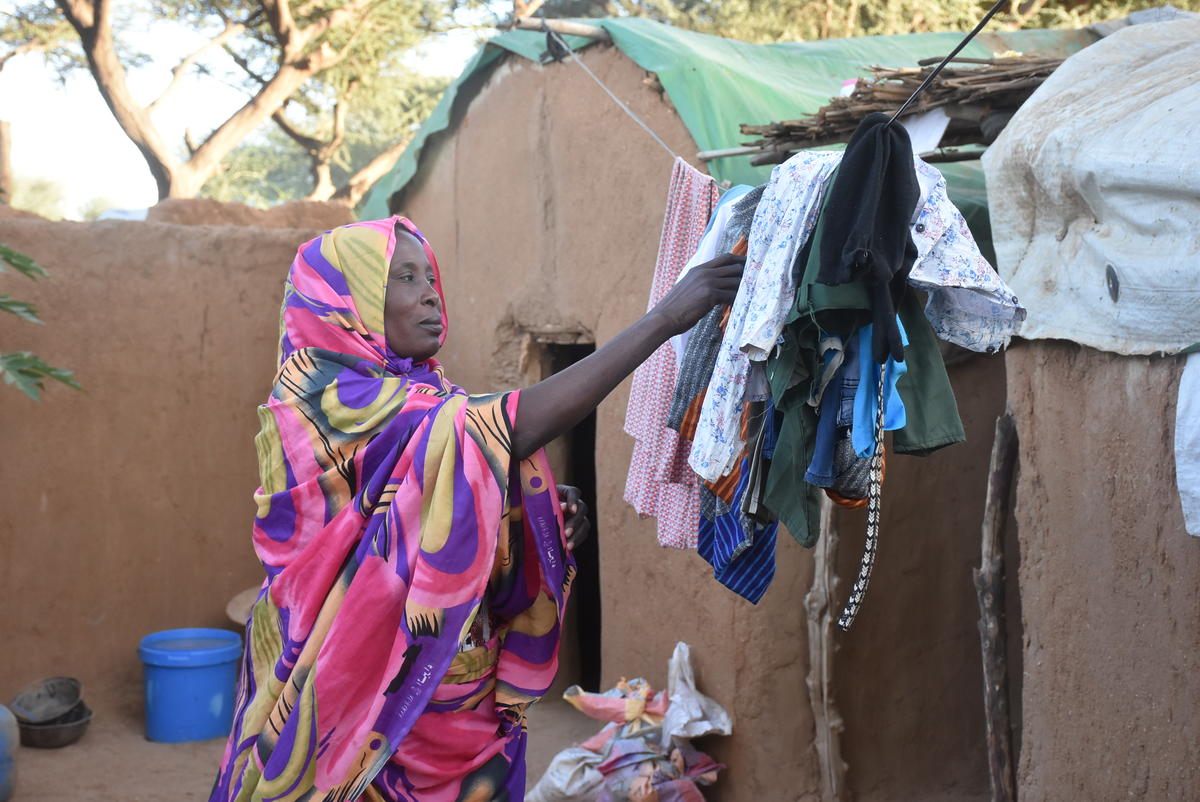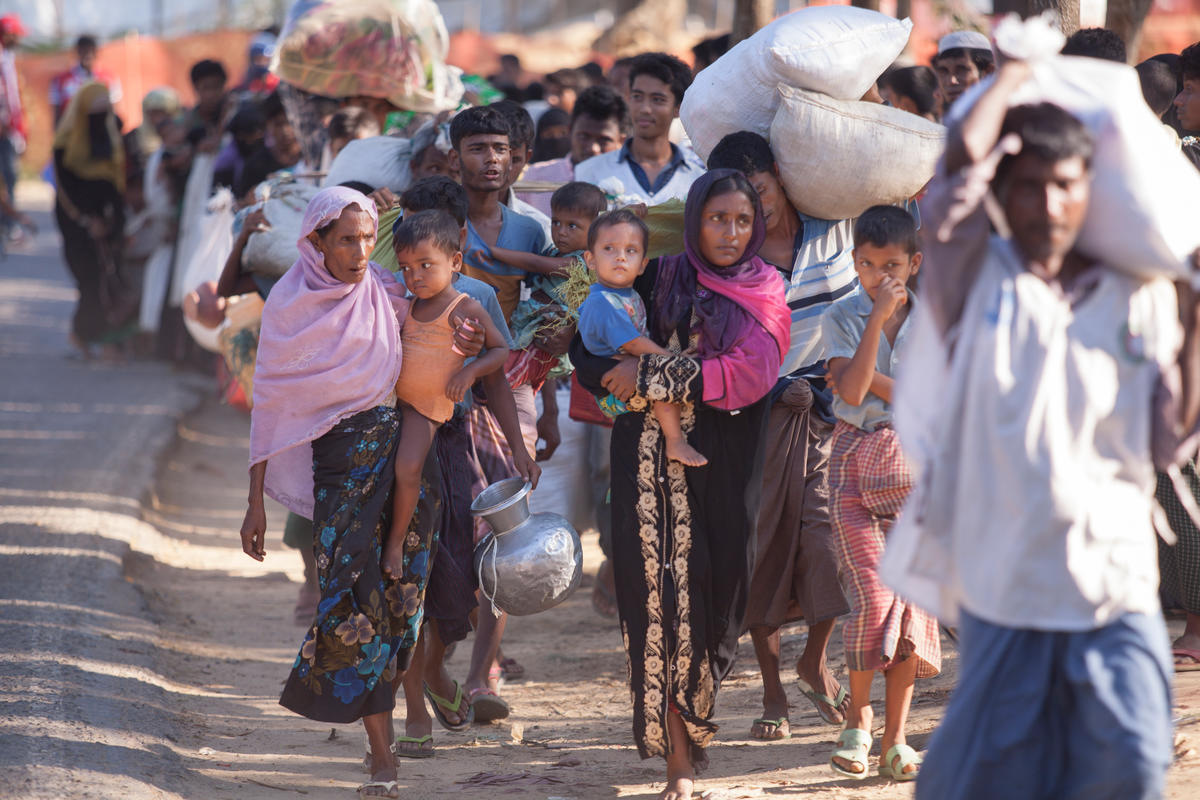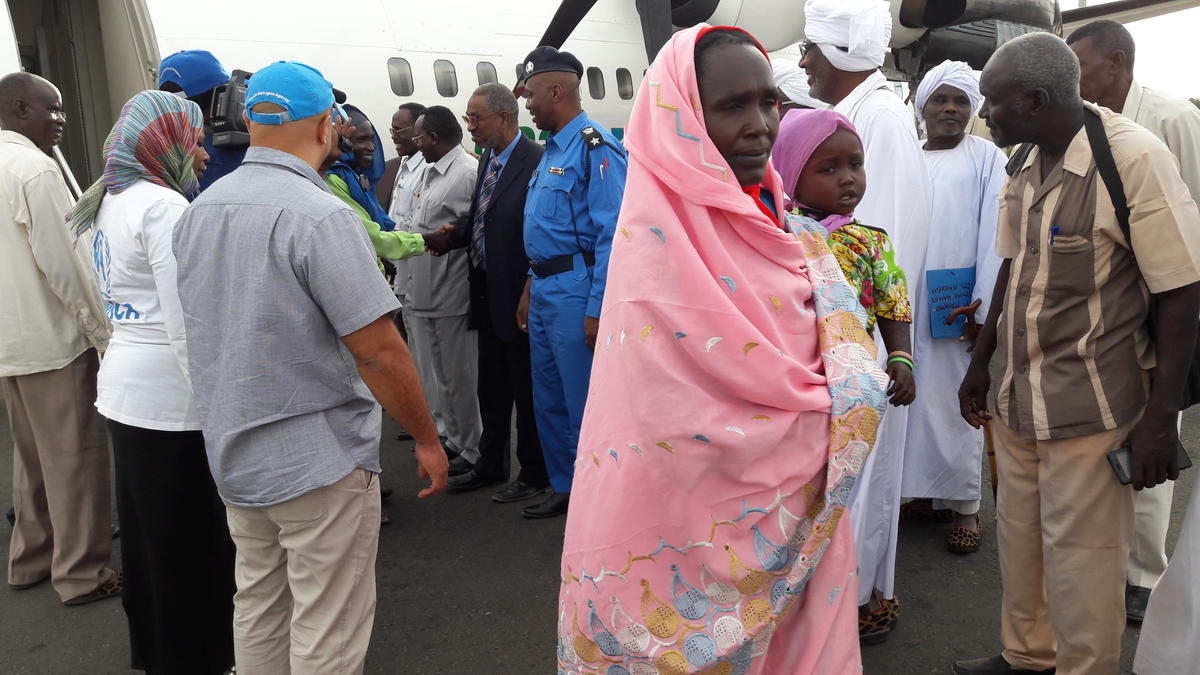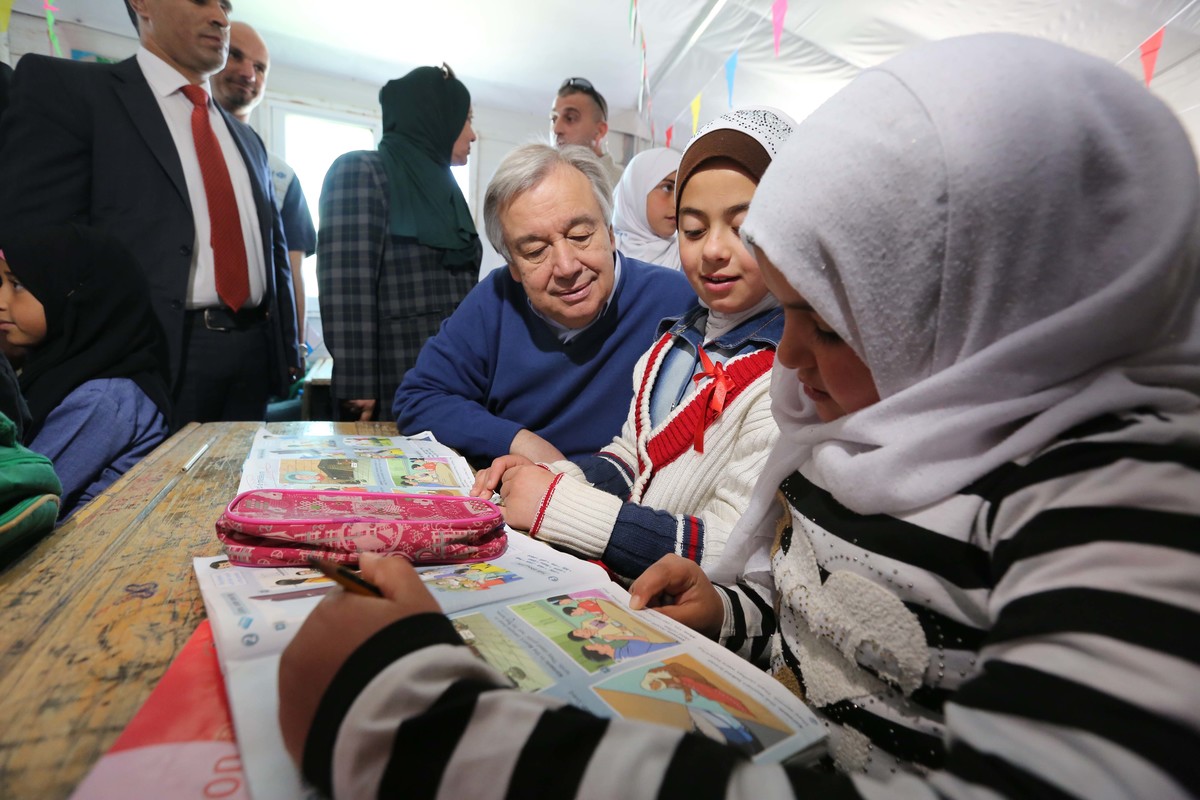High Commissioner visits Chadian refugee camp in West Darfur
High Commissioner visits Chadian refugee camp in West Darfur

UM SHALAYA, Sudan, April 26 (UNHCR) - UN High Commissioner for Refugees António Guterres on Wednesday visited thousands of Chadian refugees who fled to strife-torn Darfur to escape growing violence in their neighbouring homeland.
Guterres, on the third day of a four-day mission to Sudan, flew by helicopter to Um Shalaya refugee camp, 65 km south-east of El Geneina, West Darfur's main city. More than 4,800 Chadian refugees are in the camp, while an estimated 20,000 others have decided to stay in makeshift settlements along the border where they are closer to their properties in eastern Chad. Most of the Chadians in Darfur fled increasing violence and insecurity that has plagued parts of eastern Chad since late 2005.
The High Commissioner first met with several local residents in Um Shalaya village who had come to the refugee camp to see him. The sheiks told Guterres that they consider the Chadian refugees, mainly from the African Dadjo tribe, as their brothers and sisters and pledged to support them until they can return home to Chad. The Chadians are able to sell firewood in the local market and also work as day labour in community tobacco fields.
Guterres then met with Chadian refugee leaders, who thanked UNHCR for its support to the camp, including the recent construction of a school.
"But we also need more security", one of the leaders said. They also raised the issue of access to water in the extremely arid desert region.
Guterres acknowledged the vital importance of water for everybody living in the region, and promised the refugee community that UNHCR and its partners would try to find the best solution for all.
"My big hope," he said, "is that peace will be re-established soon in Chad for you to go home. Peace is the most important thing."
"I just met with herders as well as with farmers, both Sudanese, and with Chadian leaders," Guterres told reporters before leaving the camp. "They all managed to find a way to live together. If they can manage here, the whole region can manage."
Most of those in Um Shalaya camp are women, children and the elderly. A month ago, UNHCR organized three convoys to transport some 730 Chadians and their livestock from the border area in Arara and Beida, on the Darfur side, to Um Shalaya. Most had fled recent insecurity in eastern Chad. Upon arrival at Um Shalaya, refugees are allocated a plot of land, shelter materials to construct their own huts, sleeping mats, blankets, cooking utensils, jerry cans, wash basins, buckets, soap and sanitary kits.
Guterres also visited the Um Shalaya women's centre, where he again heard concerns about security in what the High Commissioner described as an increasingly complex conflict that had spread across borders and involved disparate groups.
"For centuries, there has been peace here - farmers and herders lived together," Guterres told the local sheiks. "This is why it is important that peace comes first."
The High Commissioner later met with African Union officials in El Geneina and stressed that security was a key component for humanitarian workers trying to help the displaced. Since the beginning of the year, 10 AU soldiers have been killed in Darfur.
On Thursday, Guterres was scheduled to travel to Kassala State in eastern Sudan and will visit two refugee camps hosting Eritrean and Ethiopian refugees. The camps were established almost four decades ago. East Sudan presently hosts 136,000 refugees.









